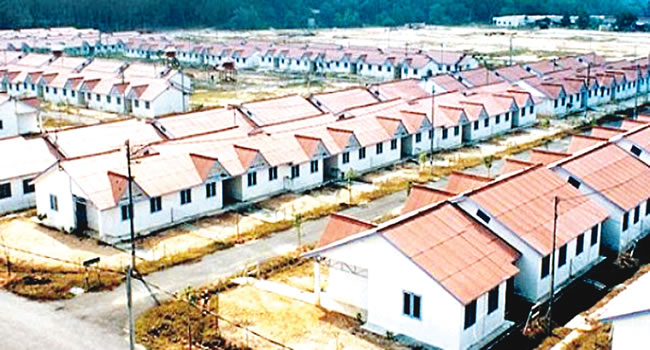Human activities ranging from sand-filling of wetlands and other open water bodies to construction of buildings, deforestation, overfishing/overhunting amongst others have resulted in considerable changes in the ecological balance, the Commissioner for the Environment and Water Resources in Lagos State, Mr Tunji Bello, has said.
According to him, the greatest problems facing biological diversity today stemmed from habitat destructions, over exploitation, pollution and global climate change.
Bello made this known in a statement during the commemoration of the year 2021 Biodiversity Day, adding that the state government had commenced collaboration with reputable Non-Governmental Organisations (NGOs) on conservation matters aimed at sustainability, conserving biodiversity and wildlife protection.
While identifying the cooperation and collaboration of relevant stakeholders as a solution to the problem, the commissioner said amongst the steps taken included an ongoing partnership with the Lekki Urban Forest and Animal Sanctuary initiative (LUFASI) on the conservation of vultures, pangolin and Ekki tree population in the state.
He expressed the hope that when the project eventually commenced, it would help protect these critically endangered species from extinction and serve as a springboard for their sustained population in the wild.
He disclosed that government is also working with the Nigerian Conservation Foundation (NCF) on conservation matters and also willing to partner with other stakeholders in the course of wildlife and biodiversity protection in the state.
Bello said the theme for the year’s celebration “We are part of the solution #ForNature” aligned perfectly with the United Nations Sustainable Development Goal (SDG) 14 (Life under Water) and 15 (Life on Land) that about 20 per cent of the animal protein diet for close to three billion people worldwide is gotten from fish, while 80 per cent of human diets is from plant.
According to the commissioner, 80 per cent of rural dwellers in the world depend on traditional herbs for their basic health care; therefore the importance of biodiversity cannot be overemphasised.
He noted that the need by property developers to acquire land for housing developments in the state had led to the destruction of many wetlands and forest ecosystems which serve as habitats for a considerable percentage of the state’s biodiversity.
“Pollution of water bodies with refuse and other harmful substances are also a cause for concern as mentioned earlier. Over exploitation of wildlife is also a major contributor to the increasing decline in the population of several species of animals in the State,” he emphasised.
He mentioned that amongst the animals facing imminent threat of extinction are the pangolin, vulture, sea turtle and manatee populations, saying that the trend of progressive biodiversity loss in both terrestrial and aquatic ecosystems is as a result of increasing human population and their anthropogenic activities.
He reiterated that government frowned at the people who deal in the illicit trade of wildlife trafficking and sales, especially in the wet markets across the state warning that people should desist from the illegal act as the ministry will soon commence a state-wide surveillance and enforcement of same to curb the menace.
“Apart from the threat the trade poses to wildlife population, the possible outbreak of very dangerous zoonotic diseases is of serious concern to this Government and therefore shall not continue to condone this act” he stressed.
He said that government would continue to enact laws and formulate policies on ensuring wildlife and ecosystem protection in the state to help protect these critically endangered species from extinction and serve as a springboard for their sustained population in the wild.
YOU SHOULD NOT MISS THESE HEADLINES FROM NIGERIAN TRIBUNE
We Have Not Had Water Supply In Months ― Abeokuta Residents
In spite of the huge investment in the water sector by the government and international organisations, water scarcity has grown to become a perennial nightmare for residents of Abeokuta, the Ogun State capital. This report x-rays the lives and experiences of residents in getting clean, potable and affordable water amidst the surge of COVID-19 cases in the state.
Selfies, video calls and Chinese documentaries: The things you’ll meet onboard Lagos-Ibadan train
The Lagos-Ibadan railway was inaugurated recently for a full paid operation by the Nigerian Railway Corporation after about a year of free test-run. Our reporter joined the train to and fro Lagos from Ibadan and tells his experience in this report…
WATCH TOP VIDEOS FROM NIGERIAN TRIBUNE TV
- Let’s Talk About SELF-AWARENESS
- Is Your Confidence Mistaken for Pride? Let’s talk about it
- Is Etiquette About Perfection…Or Just Not Being Rude?
- Top Psychologist Reveal 3 Signs You’re Struggling With Imposter Syndrome
- Do You Pick Up Work-Related Calls at Midnight or Never? Let’s Talk About Boundaries






